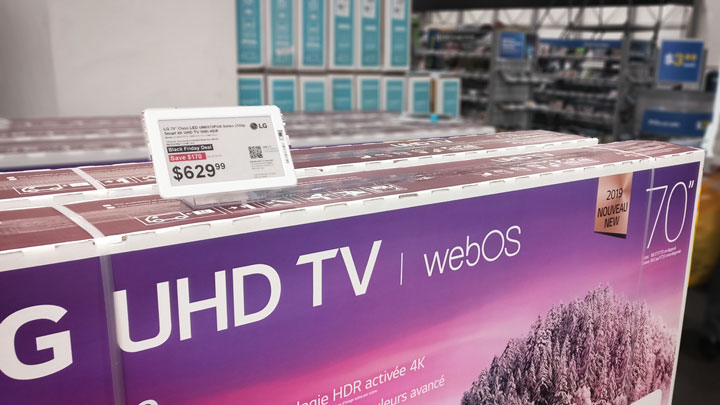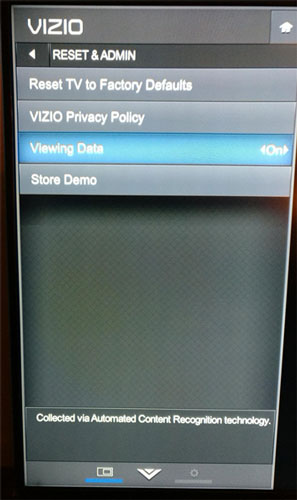If you told me that on Black Friday, I could get a 75 inch TV for the price of a smartphone, I'd say that it must be a top of the line smartphone. But it is not price of smartphones that skyrocketed to reach that of TVs. It's the price of TVs that went down to an almost ridiculous number.
That's what I saw when I walked into a BestBuy this last Black Friday. I saw a 75 inches 4k TV that sold for $699. The deal is so good, that it tips the balance of excitement into skepticism. The 50 inches is selling for $269, the 43 inches Samsung is selling for $229. Are manufacturers slashing their prices only to give us crazy deals even at a loss? Why are they so cheap?
You walk a couple feet in the store and you see some non-discounted TV that cost over $3000. The cheap TVs are plugged right next to the expensive ones, displaying their image quality for all to see. They are no OLED screens, but the quality of the image is not too far off in this lighting. Why are they so cheap?
The PlayStation 4, one most popular of all video game consoles, cost $381 to manufacture. Yet on its release date, it was sold for $399 in the US. Sony made a measly $18 per sale. The price does not justify the years of research and development that made the console possible. It's predecessor, the PS3, cost Sony $805 to produce and was introduced to consumers at $599 in 2006. They operate at a lost.
Yet, in 2018, the PlayStation division at Sony made $20 billion in revenue. They can afford to lose on the glorified media player because they recuperate the money elsewhere. The customer has to buy games that run on the PlayStation. Sony mostly works with large game publishers and create big games in partnership. By the end of 2018, there had been a total of 876 million games sold, nearing 1 billion in 2019. They can sell their console at a loss, because it is only a vessel for the games consumers will buy.

But what about TV manufacturers. They do not create the content that is played on the device. In fact, once you have a TV you don't ever need to interact with the manufacturer again. Unless you live in an Internet connected world and every device has access to your home network.
In 2015, I bought in a brand new 1080p TV from Vizio. It was cheap for a 60 inch TV, but hey, a good deal is a good deal. It wasn't until 2017 that I read these words on the Federal Trade Commission's website:
Starting in 2014, Vizio made TVs that automatically tracked what consumers were watching and transmitted that data back to its servers. Vizio even retrofitted older models by installing its tracking software remotely. All of this, the FTC and AG allege, was done without clearly telling consumers or getting their consent.
For two years, all the content we watched in the family room was recorded "On a second-by-second basis, Vizio collected a selection of pixels on the screen that it matched to a database of TV, movie, and commercial content." The article continues:
Vizio then turned that mountain of data into cash by selling consumers’ viewing histories to advertisers and others.
TV manufacturers found a way to make a buck indefinitely with your TV. The more you use your TV, the more you generate data for them to sell. You watch children shows on NetZonTube? The information is sent back to the mothership where you are targeted for children's product. You plug an Xbox to your TV? That information is sent to advertisers immediately.
TVs can now afford to be cheap, because they are sold as a gateway for User Data Collection.
The first thing I did with my TV, was dig into the menu to find that conveniently buried option to disable all tracking. If Vizio deceived its customers in the first place, then I don't have much guarantee that turning it off will stop tracking. The next thing to do is to disconnect your TV from the Internet. Yes, seriously. If you have a PlayStation, Roku or your own media device, use that to connect to your streaming services. Let the TV be a passive medium that simply displays pixels on the screen.

Not to single-out Vizio here, because that's the TV I own, they are by no means the only culprit. No one has the time, or is expected to read through the terms and conditions that appear when you set up your brand new TV. In the case of Vizio, it didn't matter if you read the legalese, they secretly tracked consumers anyway. Before you drop a dime on you next TV, take a moment to see if there is a way to disable all tracking. Or at the very least, do not connect it to the Internet.
We are already amusing ourselves to death with TV. The last thing we want, is to install telescreens in our homes.
Resources:




Comments
There are no comments added yet.
Let's hear your thoughts